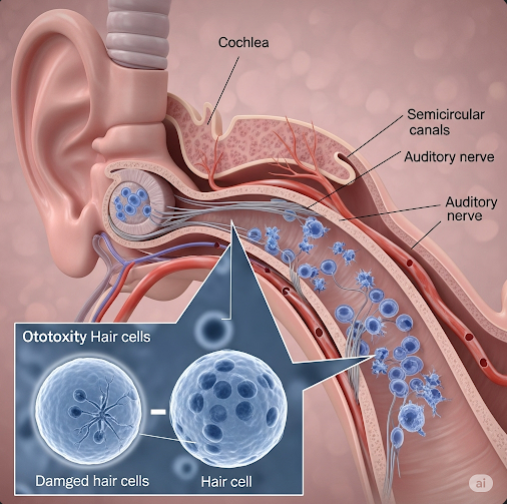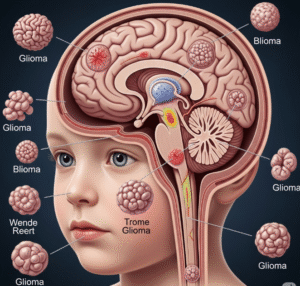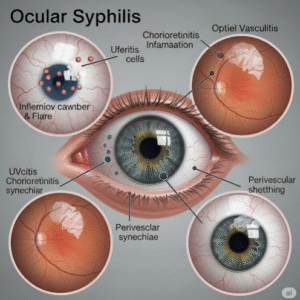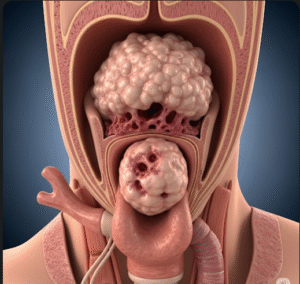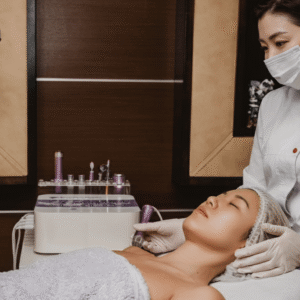Overview
Ototoxicity refers to ear poisoning caused by exposure to certain drugs or chemicals that damage the inner ear or the auditory nerve, leading to hearing loss, tinnitus, or balance disorders. It can be temporary or permanent, depending on the extent of damage. In Korea, healthcare providers carefully monitor patients at risk to prevent and manage ototoxicity effectively.
What is Ototoxicity?
Ototoxicity is the harmful effect on the structures of the inner ear or the vestibulocochlear nerve caused by medications or toxins. It often affects the cochlea (hearing) or vestibular system (balance), resulting in symptoms such as hearing loss, ringing in the ears, dizziness, or balance problems.
Symptoms
Symptoms of ototoxicity may include:
- Hearing loss, often starting with high-frequency sounds
- Tinnitus (ringing or buzzing in the ears)
- Vertigo or dizziness
- Loss of balance or unsteadiness
- Nausea or vomiting related to vestibular dysfunction
Causes
Common causes of ototoxicity include exposure to:
- Certain antibiotics (e.g., aminoglycosides like gentamicin)
- Chemotherapy drugs (e.g., cisplatin)
- Loop diuretics (e.g., furosemide)
- Non-steroidal anti-inflammatory drugs (NSAIDs) in high doses
- Industrial chemicals such as solvents or heavy metals
Risk Factors
Risk factors that increase susceptibility to ototoxicity include:
- High doses or prolonged use of ototoxic drugs
- Pre-existing hearing loss or ear disorders
- Advanced age
- Kidney impairment affecting drug clearance
- Concurrent use of multiple ototoxic medications
Complications
Ototoxicity can lead to:
- Permanent hearing loss or deafness
- Chronic tinnitus
- Persistent balance disorders leading to falls and injury
- Reduced quality of life due to communication difficulties and dizziness
Prevention
Preventive measures for ototoxicity include:
- Careful prescribing and monitoring of known ototoxic drugs
- Regular hearing and balance assessments during treatment
- Adjusting medication doses for patients with kidney problems
- Educating patients about early symptoms of ototoxicity for prompt reporting
Treatment Options in Korea
In Korea, management of ototoxicity focuses on:
- Early detection: Audiological and vestibular testing before, during, and after exposure to ototoxic agents
- Medication adjustment or discontinuation: To minimize further ear damage
- Hearing rehabilitation: Use of hearing aids or cochlear implants if hearing loss is significant
- Vestibular therapy: Balance training and physical therapy to improve stability
- Patient education and support: Counseling on coping strategies and preventive care
Korean medical centers employ advanced diagnostic technologies and multidisciplinary teams to provide optimal care for patients at risk of or affected by ototoxicity.

